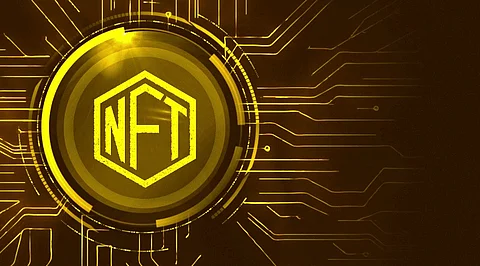

As blockchain and crypto have continued to gain attention and popularity over the past year, non-fungible tokens have surged into the spotlight. NFTs are cryptographic tokens that cannot be replicated. Many kinds of transactions can use them, and they may create new markets in the future. Non-fungible tokens are unique digital assets that can be created and traded on blockchain networks. It is a non-interchangeable unit of data stored on a blockchain that can be sold and traded. NFTs by themselves are not investments, so make sure to understand the value of the underlying asset that you are buying before you purchase the NFT. These blockchain assets are likely to emerge as an important pillar of the new economy with important implications for privacy and security.
Blockchain is currently one of the most-hyped technologies. Blockchain technology is a great example of the unrelatedness of security and privacy. It can also help to improve defensive cybersecurity strategies, especially in terms of identity and access. Crypto wallets may be pseudonymous, but many exchanges have to follow Know Your Customer protocols and collect tons of other data about users. Even though privacy-enhancing technologies are deployed, they still produce metadata. To combat public scrutiny comes with obscure methods like using unique wallets for each transaction, or employing a tumbler or mixer service. If the currency or any other value is traded on a blockchain-based application, a much higher transaction speed is needed. Blockchain technology will not be the holy grail of cybersecurity, but it is a powerful tool that can help to harden systems. Blockchain plays its strengths very well.
Non-fungible tokens are designed to be scarce; anyone can know who owns a traditional NFT and identify individuals. NFTs have the potential to become the basis of many different kinds of essential transactions.
NFTs have the ability to reduce frictions in the market. This is because transactions on blockchain networks do not need to be cleared by intermediaries and also reduce the amount of time and money involved, this lack of middlemen also reduces risks to privacy.
Moreover, some have proposed that NFTs could contain tokenized information to be used in conjunction with smart contracts such that smart contracts could use the NFTs to verify necessary information without ever exposing it to a third party.
But in this web 3. o age risks become heavily intertwined with the assets held by individuals. There are several ways in which owning, acquiring, and disposing of NFTs could give rise to privacy risks in the Web 3. o age including online identifiers and avatars, location data, blockchain addresses, etc.
It is possible to send NFTs to any address, regardless of whether the recipient approves the transaction. Moreover, NFTs aren't strictly limited to static links. Every NFT is governed by a smart contract. According to the rules of the smart contract that governs Squid tokens, they will likely remain in investors' wallets forever.
NFTs provides authentication so we can utilize NFTs to authenticate any digital certificate. These certificates use blockchain technology and tokenization and are not assets in the sense that they have a market value.
NFTs currently circulating are almost certainly not securities. The economic use cases for NFTs, their utilization, and purpose are limitless and will impact any industry, product, or service. Innovation is evolving to create applications, that betters society and the economy and thus regulation should strive to do the same
Join our WhatsApp Channel to get the latest news, exclusives and videos on WhatsApp
_____________
Disclaimer: Analytics Insight does not provide financial advice or guidance. Also note that the cryptocurrencies mentioned/listed on the website could potentially be scams, i.e. designed to induce you to invest financial resources that may be lost forever and not be recoverable once investments are made. You are responsible for conducting your own research (DYOR) before making any investments. Read more here.
